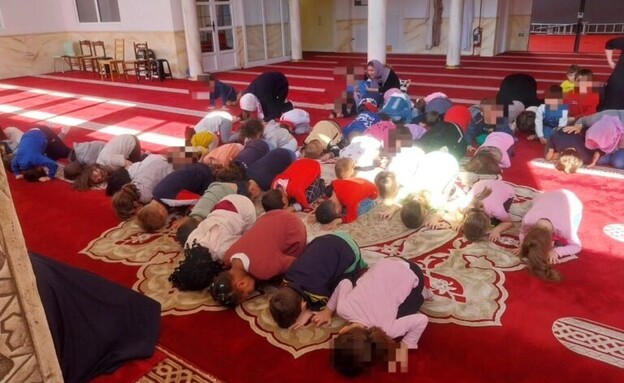Italy Erupts Over Kids Bowing in Mosque During School Trip
A school trip meant to promote interfaith dialogue has sparked political uproar after children were seen bowing in prayer next to an imam — raising questions about religious influence in early education.

A visit by Catholic kindergarten children to a local mosque in Susegana, in Italy’s northern Veneto region, has ignited a political firestorm after photos circulated showing the children kneeling and bowing toward Mecca alongside a local imam.
The kindergarten’s social media post described the trip as an “emotional and educational experience,” carried out with full parental consent. Teachers wore headscarves, and the children met the imam, who explained the principles of Islam and offered a brief introduction to Muslim prayer.
The backlash was swift and fierce.
Alberto Villanova, a regional councilor from the right-wing Northern League party, called the image “chilling.” Giovanni Zorzi, local Democratic Party secretary, expressed discomfort as well:
“While interfaith dialogue is important, I would have preferred a more secular way to convey a message of peace.”
European Parliament member Anna Maria Cisint labeled the event “pure fundamentalism,” accusing the imam of using the moment to “preach” to children.
“Were the children also told about head coverings for women? About early marriage in Islam?” she asked. “This is not religious education. This is indoctrination.”
Another MEP, Silvia Sardone, published the images on her X (formerly Twitter) account, writing:
“Children taking Qur’an and Sharia lessons in a mosque. Does this look normal to you? This is not inclusion — this is unacceptable indoctrination.”
In response to the growing criticism, the Veneto regional education office clarified that the kindergarten in question is not a public school, but is recognized by Italy’s national preschool federation and operates under the country’s education equality laws.
The Italian Ministry of Education has reportedly launched an investigation to determine whether the visit complied with national education standards and preserved students’ rights to freedom of conscience and choice.